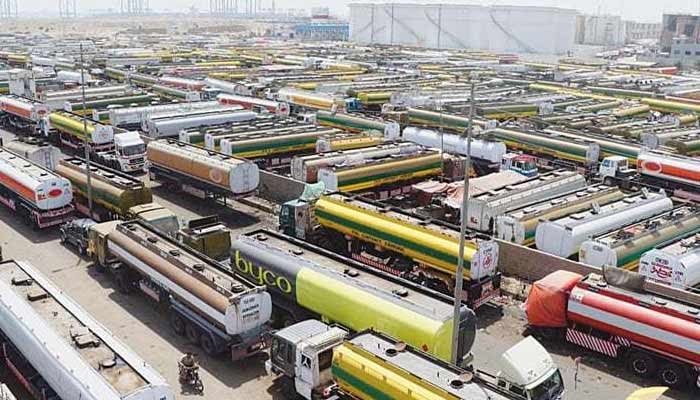GLOBISCOPE
Pakistan’s Oil Supply Chain Faces Collapse Amid Sindh’s Bank Guarantee Rule, Warns OCAC
PAKISTAN
Globiscope
10/21/20252 min read


A looming fuel crisis threatens Pakistan as multiple petroleum shipments remain stranded at Karachi ports due to the Sindh government’s decision to reimpose a 100% bank guarantee under the Sindh Infrastructure Development Cess (IDC). The Oil Companies Advisory Council (OCAC) has warned that the national fuel supply chain could collapse within days if the issue is not urgently resolved.
Fuel Shipments Stuck at Karachi Ports
At least five major oil vessels—carrying petrol and diesel for PSO, HPL, PGL, and Parco—are currently awaiting customs clearance, according to a letter OCAC sent to the Sindh Chief Minister and federal authorities on Monday. With Motor Spirit (petrol) reserves at Keamari rapidly declining, the industry warns of nationwide fuel shortages, particularly affecting transport and agriculture, if clearance is delayed further.
“The oil supply chain is on the brink of collapse. If these shipments are not cleared immediately, recovery could take more than two weeks,” the OCAC cautioned.
IDC Dispute Deepens Financial Strain
The crisis stems from a dispute over the 1.8% IDC imposed by the Sindh and Balochistan governments on petroleum imports. While the matter is still pending before the Supreme Court, the Sindh Excise Department abruptly revoked an earlier interim arrangement that allowed oil companies to provide undertakings instead of bank guarantees. The new rule now demands billions of rupees in bank guarantees per shipment, a financial strain industry players say is unsustainable.
The OCAC explained that the IDC alone adds over Rs3 per litre to the cost of petrol and diesel — a cost that cannot be passed on to consumers because of regulated fuel prices, tight credit limits, and slim profit margins.
OCAC Urges Immediate Federal Intervention
To prevent a nationwide fuel crisis, the OCAC has called on the Federal Board of Revenue (FBR) and Pakistan Customs to release all petroleum cargoes without bank guarantees. The council also proposed long-term policy measures to stabilize the situation, including:
1. Official recognition that fuel pricing falls under federal jurisdiction.
2. Incorporating IDC charges into the national fuel pricing framework.
3. Establishing a recovery mechanism for outstanding IDC dues.
The OCAC further noted that Punjab and Khyber Pakhtunkhwa have already exempted petroleum products from IDC, aligning with the federal government’s pricing policy.
Nationwide Impact Looms
If the deadlock continues, Pakistan could face fuel station shutdowns, transportation bottlenecks, and agriculture delays, leading to wider economic repercussions. The OCAC’s warning highlights the urgent need for coordination between provincial and federal authorities to avoid a major energy supply crisis.


Globiscopes news 2025
Globiscopes news empowers the generation of tomorrow for a brighter future and hope for every individual.
inbox
Subscribe to our newsletter and never miss a story.
We care about your data in our privacy policy.
